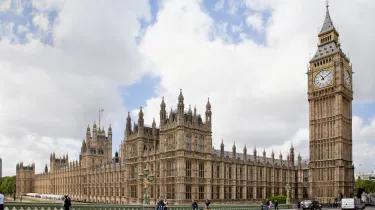
Did you think it a dead cert that Labour chancellor Rachel Reeves would hike fuel duty in the budget? You’re not alone - a poll of Auto Express readers shows that three quarters of drivers (75 per cent) were expecting to have to pay more to fill their cars up following the budget statement.
Despite months of speculation from pundits, many pointing to the possibility of as much as an extra 7p on a litre of petrol, the feared rise didn’t happen. So why does our post-budget polling suggest that drivers are less than impressed with a decision to simply freeze fuel taxes for another year, and disenchanted with the budget in general?
Chancellor Reeves might have expected a warmer response to her fuel duty decision from car owners, yet a huge 66 per cent of our poll respondents said Labour’s budget was not a good one for motorists, with even more - 77 per cent - saying she could have done more for drivers. Overall, only 15 per cent of Auto Express readers welcomed the budget as good news, and there was a strong message suggesting that drivers aren’t impressed with the £500m pledged by Labour to meet its manifesto commitment to fix a million potholes.
Perhaps this is not surprising, given the widely shared analysis that the bill to bring UK roads back to a safe and sound condition is closer to £16 billion - suggesting this year’s cash injection will barely scratch the surface. Asked whether the Chancellor should have done more in the budget to drive the transition to electric cars, 55 per cent said no, 34 per cent said yes, while 11 per cent were undecided.
The RAC Foundation is a charity that keeps its finger on the pulse of UK motoring, so we asked director Steve Gooding for his commentary on why a seemingly ‘good news’ budget has left drivers feeling so underwhelmed.
“For the majority of people having a car isn’t a lifestyle choice but a necessity, yet even though the rates didn’t go up, more than half the price of the fuel most of us need to run our vehicles still heads off to the Chancellor in fuel duty and VAT. In a very real way fuel duty is a tax on working people and a tax on business,” he said.
“Drivers have also been hit with motor insurance hikes that have risen at more than four times the rate of inflation over the past decade, and for all the positive voices heard talking about electric vehicles, many motorists feel they are being forced towards an uncertain battery-powered future.
“Meantime do any of us think that we’re getting a better, smoother, more reliable service from our potholed and congested roads? It clearly doesn’t feel like it,” he said.
